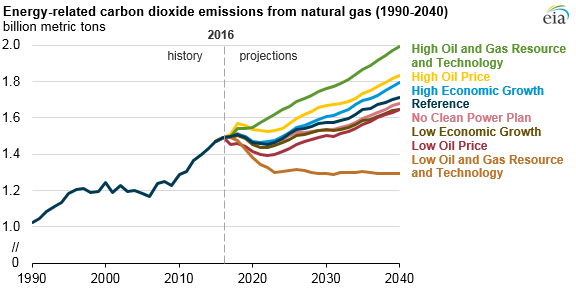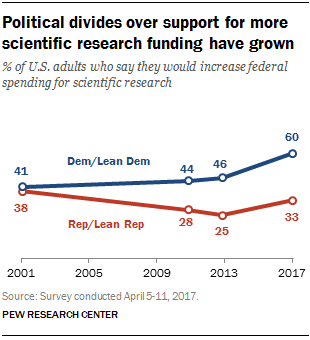 Welcome to the second edition of my occasional newsletter on climate and energy issues. As a reminder, my day-to-day research or writing is focused on sports governance and science policy. But I’ve written a fair bit on the topics of climate and energy over the past 25 years, including two books and a boatload of academic papers, and I’m paying attention. So caveat lector!
Welcome to the second edition of my occasional newsletter on climate and energy issues. As a reminder, my day-to-day research or writing is focused on sports governance and science policy. But I’ve written a fair bit on the topics of climate and energy over the past 25 years, including two books and a boatload of academic papers, and I’m paying attention. So caveat lector!
A few things to say up front:
- If you don’t like what I write or don’t like me, then don’t read it – no big deal, just a professor with a blog.
- If you appreciate the perspective, consider the tip jar to your right. And thanks to those of you who visited it last month – much appreciated!
- If you’d like to engage, consider a comment, a Tweet or an email. I am happy to discuss or debate.
- If you choose to call me names or lie about me, oh so common in discussing climate, then you will be blocked or ignored.
- With that, let’s see what I found interesting over the past month . . .
Climate and Energy Policies
- Will he or won’t he? There has been much discussion of whether President Trump keeps the US in the Paris Agreement. If we are having this debate then Trump has already won.
- Much of climate debate (at least in the US) is about symbols, and Trump has roundly routed his opponents on this turf (in fact, this may be the only turf that Trump cares about, but I digress).
- Consider Adam Sieminski, President Obama’s appointee to head the US Energy Information Agency, who now says that opposing the Keystone XL was a mistake. Amy Harder at Axois writes: “symbolic climate politics won out over pragmatic energy policy.”
- Trump made Keystone XL a feature of his campaign, upon taking office issued an Executive Order approving the project with no opposition from Congress or really anyone else (outside social media echo chambers).
- Trump also held an event and signed some sort of symbolic document recognizing coal miners. As I wrote at the Bulletin of Atomic Scientists, this wasn’t about coal or energy policy, it was about R-E-S-P-E-C-T.
- So think of the Paris Agreement not as a policy framework, but rather as a potent political symbol.
- As a symbol, here is how the politics works: Trump pulls out of Paris, Trump wins. Trump stays in, Trump wins. Fun game, huh?
- In a perceptive piece @jmcurtin writes: “The only White House climate debate is between those who want to use the Paris climate agreement as a branding and lobbying opportunity, and those who favour leaving it altogether.”
- The rest of the world should preempt Trump and just kick the US out.
- Similarly, President Trump has made a big deal of reversing Obama’s Clean Power Plan. This too is a symbolic action. According to EIA, the impact of the CPP is pretty marginal:

- In fact, its projected impact of the CPP is far less than market prices for fossil fuels, again according to EIA:

- Consider that the CPP would likely have been tied up in the courts during a Hilary Clinton administration and you get … symbolism.
- Advocates for more aggressive climate action should use the opportunity afforded by the Trump presidency to fundamentally rethink climate policy in a way that would be politically robust.
- I read and hear lots of smart people wondering, “How can we elect people who will support Paris and the CPP?” This is backwards. The more pressing challenge is to come up with energy and climate policies that survive regardless of who is elected.
- After all, if the world is going to decarbonize at a rate 2-3x historical averages, then it will need public support for policy action over many decades. You don’t have to be a card-carrying political scientist to understand that political party control of government will change — a lot — over such a long time period.
- Bottom line: The Trump presidency reveals the utter failure of US climate policy — it crashed and burned on the first presidential transition. In fact, it may have contributed in some ways to the election of that president (again, I digress). Climate advocates have an opportunity to rethink what a “big tent” approach to climate policy might look like. But will they?
Climate Wars
- Maybe I’m just an eternal optimist, but it does seem that the tide may finally be starting turning against the extremist views of leading climate scientists and their acolytes.
- Sure, there were smart pieces by smart thinkers at CSPO and the Breakthrough Institute: @JasonGLloyd (great piece here) and @TedNordhaus (more awesomeness here).
- But what really was encouraging was Nature magazine writing: “But name-calling and portraying the current political climate as a war between facts and ignorance simply sows division.”
- Perhaps Nature’s editors noticed that in the US, public support for science funding, once a shared, bipartisan priority, has split on partisan lines:

- Did the recent Science March help to bring people together? Early evidence says: probably not.
- After failing to get Bret Stephens fired from the New York Times, the nation’s leading climate scientist, Michael Mann (@MichaelEMann) has focused his vitriol on cartoonist Scott Adams, of Dilbert fame (@ScottAdamsSays).
- I can’t believe I just wrote that. (Seriously, if you are not yet blocked by Mann, go over and read his Twitter feed for a glimpse into the world view of the nation’s most important climate scientist.)
- Pro tip: If you don’t want to be viewed as analogous to a religious fundamentalist, don’t go after cartoonists.
Some science
- Researchers at the University of Colorado published a paper on the carbon cycle with potentially significant implications for climate models and understandings of carbon on planet earth. You probably didn’t read about it in the media.
- Here is an interesting paper on how science assessments treat minority or divergent views (not well).
- Are low-energy light bulbs now in such wide use that they are influencing total US energy use? These guys think so.
- A new paper in Science suggests that the notion of “Global Warming Potentials” blurs temporal trade offs that are inherent in policy. (Duh, I testified befoe Congress on this a long time ago – PDF).
- A great talk at Oxford University on the relationship of climate change and violence (watch 3:30-6:30 if you are time limited).
Lots of stuff on the cutting room floor, I’ll get to it next time. All for now!
